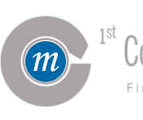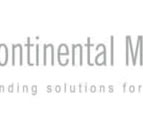 |
 |
 |
 |
mortgage loan programs available in: Alabama, Alaska, California, Colorado, Florida, Montana, Indiana, Louisiana, Maryland, Minnesota, Mississippi, Missouri, New Mexico, North Carolina, North Dakota, Pennsylvania, South Carolina, South Dakota, Tennessee and Texas |
||
 |
FHA home loans: | FHA home buyer | streamline refinance | mobile home loans | reverse mortgage |  |
 |
 |
 |
 |
 |
 |
|
 |
mortgage loans: | home purchase | Mortgage Refinance | home equity loans | jumbo mortgage |  |
 |
 |
 |
 |
 |
 |
 |
| FHA loans » mortgage loans » | ||||
Washington FHA LoansThe Federal Housing Administration was created in 1934 as part of the goal of the federal government to see more Americans have their own homes. The goals of the FHA have remained exactly the same throughout the years. The FHA loan programs still contribute to the building and preserving of lively communities and neighborhoods, maintaining and improving homeownership, and creating stability on the credit markets in the event of economic disruption. Washington FHA loan likewise permits you to buy yourself a home, get refinancing for your FHA mortgage loan, and be responsible for your bills on debt consolidation loans. Details of Washington FHA Mortgage Home LoanThe Washington Federal Housing Administration offers numerous mortgage loan programs to the large Washington population. FHA mortgages can have either a fixed or an adjustable rate of interest. Many first time home buyer do find such home loans very attractive because they only need you to pay very little down payment. With FHA loans, gifts may also be utilized as down payments as well as closing costs. The low payments and cost are mainly because of the regulation of the FHA. These FHA loans also have minimum qualifications that are very easy to accomplish than the conventional mortgages. Likewise, the Washington FHA does not need FICO score to be able to meet FHA loan qualifications. More so FHA programs will only allow purchase of home two years after you filed a bankruptcy. Washington FHA loan featuresAny mortgage loans that are intended to be submitted for Federal Housing Administration insurance have quite a number of important characteristics and features that would differentiate them from a traditional loan. Some of the most significant features of the FHA loans are the following: Federal Housing Administration has absolutely less strict standards in terms of quality. FHA will only permit re-establishment of your credit two years after the filing of bankruptcy, when all judgments have been satisfied and fully paid all tax liens had been repaid, and a repayment goal has been created and established by IRS, and after three years from the resolution of a foreclosure. With FHA mortgage loans, secondary financing is not permitted as the down payment. The minimum FHA down payment for any loan must be paid for in cash by the borrower. The borrower is likewise not permitted to resort to any secondary financing that will come from the seller or any lender in order to make up any portion of the down payment. The FHA however allows the use of a gift from a family member, a friend, or co-worker for down payment, credit that is derived from a part of the rents from the pay rent or purchase contract between a seller and buyer or some home improvements or repairs done by the purchaser, which is called sweat equity. All this can be used to fulfill the cost of the 3.5% down payment. As earlier mentioned, FHA loans only require very low down payments. The 3.5% down payment in cash is actually less than that of a similar conventional loan. Many FHA loan closing costs usually cover the down payments. And while a loan borrower may not be able to finance any of the FHA loan closing costs together with the price of sales, FHA allows the use of some of these closing costs in order to fulfill the requirement of 3.5% down payment. Washington FHA mortgage insurance is also required for the mortgage loan regardless of the down payment amount. With regards to the maximum amount of FHA loan allowed, such amount usually varies from state to state. In the case of Washington, the amount of loan is dependent on many factors such as the income of the borrower and his credit history. Income requirementsWashington FHA loan does not require any minimum amount requirement of a prospective borrower's income. Borrowers that can show they have two years of steady job and be able to show that they consistently pay their bills promptly are great candidates. The FHA possesses a ratio of 29% to 41%. This ratio means that a home loan payment should not exceed about 29% of the gross monthly income of the borrower while all installment debts as well as the payment for the home loan are not allowed to exceed 41%. |
||||